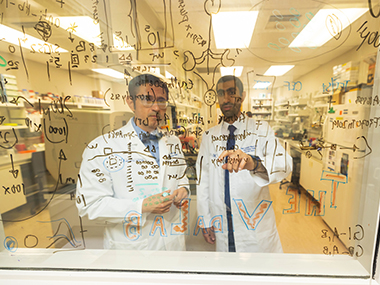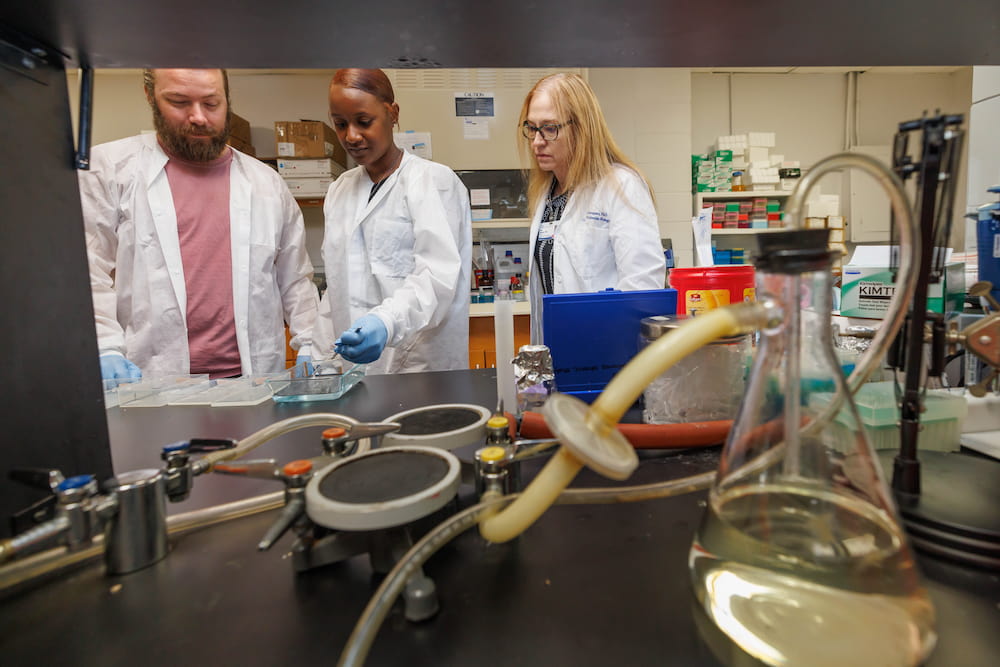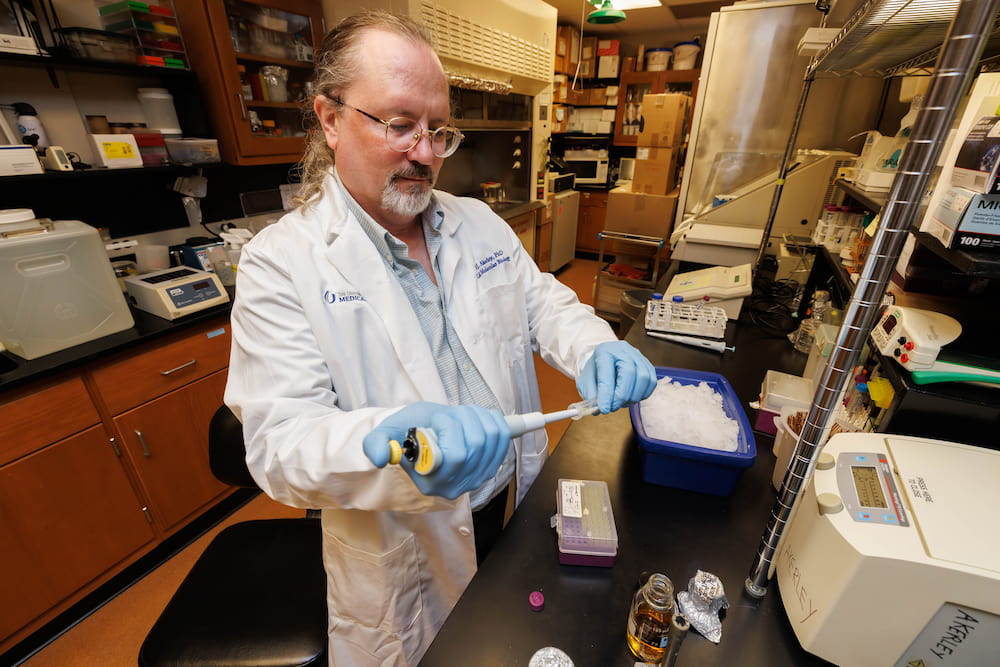News and Recognitions
- Department of Cell and Molecular Biology Home
- About the Department
- Education
- Research
- Contact Cell and Molecular Biology
- Support the Department of Cell and Molecular Biology
- Support the Center for Immunology and Microbial Research and the Graduate Program in Microbiology and Immunology
2023 News and Recognitions
New NIH Funding for Dr. Jorge Vidal to study pathophysiology of pneumococcal disease

Streptococcus pneumoniae (Spn) colonizes the upper airways of children, and the elderly, resulting in millions of deaths due to pneumonia annually. Pneumonia is an acute infection of the pulmonary parenchyma that causes cytotoxicity. All Spn strains produce abundant hydrogen peroxide (Spn-H2O2) as a byproduct of the aerobic fermentation of carbohydrates and it has a demonstrated cytotoxic activity against in vitro cultured lung epithelial cells. Despite that production of Spn-H2O2 finds optimal conditions in the lung, we lack fundamental information about the molecular mechanism driving Spn-H2O2 toxicity during replication of pneumococci in the lung parenchyma.
The long-term objective of this R01 research program is to identify the molecular mechanism(s) leading to Spn-H2O2 toxicity in the lung to find new targets for interventions. The rationale underlying this proposal is that completion will identify key molecular targets for curing pneumococcal pneumonia and preventing bacteremia. We hypothesize that oxidation of host hemoproteins by Spn-H2O2 is key in the pathophysiology of pneumococcal disease. This innovative study will significantly advance our knowledge about the cellular, and molecular pathophysiology of Spn disease. This is significant because it will provide a framework for interventions aiming at oxidative reactions. More information on the grant objectives can be found at https://reporter.nih.gov/search/u6JpvPIY70Cf13gmSDOoWA/project-details/10802690.
Collaborative science approach leads to new NIH funding
A collaboration between Drs. Mary Marquart, PhD and Brian Akerley, PhD led to a newly funded NIH-R21 grant entitled, "Mechanisms underlying adhesion and colonization in pneumococcal keratitis." The research uses molecular and functional genomics approaches to identify the factors that allow Streptococcus pneumoniae to adhere to the surface of the eye. S. pneumoniae is a respiratory pathogen that can adapt to different niches in the body, such as the eye, making it a leading cause of corneal infection and disease. Knowledge of how this organism can attach to and infect the eye will guide future therapy.


Gibert Lab achieves multiple presentations at International Association Meeting
Research from Yann Gibert, PhD and laboratory was selected for multi presentations at 16th meeting of the Zebrafish Disease Models Society (ZDMS) being held in Durham, North Carolina. The ZDMS is an international association dedicated to the advancement of basic and clinical research using zebrafish disease models.
Yann Gibert, PhD
Poster Presentation: Bisphenol A, but not Bisphenol S, exposure increases lipid deposition by activating the PI3K pathway
Bridget Konadu (Graduate Student - G5)
Flash Talk: Fetal hyperglycemia induces adult obesity and NAFLD in Zebrafish by increasing acetyl-CoA carboxylase expression
Matthew Dubuisson (Graduate Student - G4)
Poster Presentation: Does bisphenol exposure induce bone loss and osteoporosis by binding to and activating the endocannabinoid receptors in zebrafish?
Cindy Nguyen (Graduate Student - G4)
Poster Presentation: N-3 Polyunsaturated Fatty Acid (N-3 PUFA) Derived Lipid Mediators Increase Hematopoiesis During Zebrafish Embryogenesis


